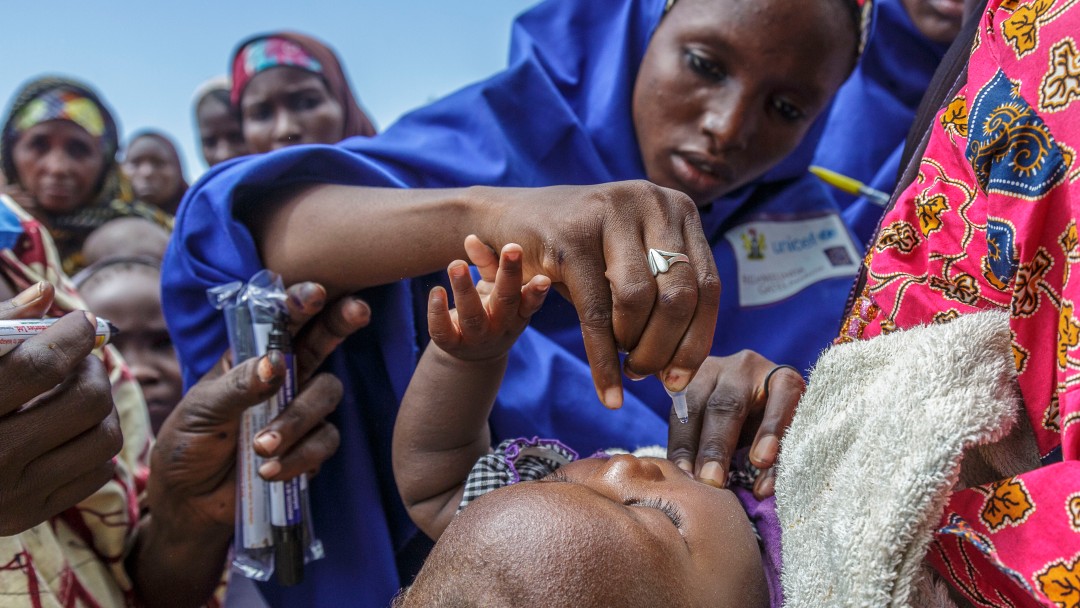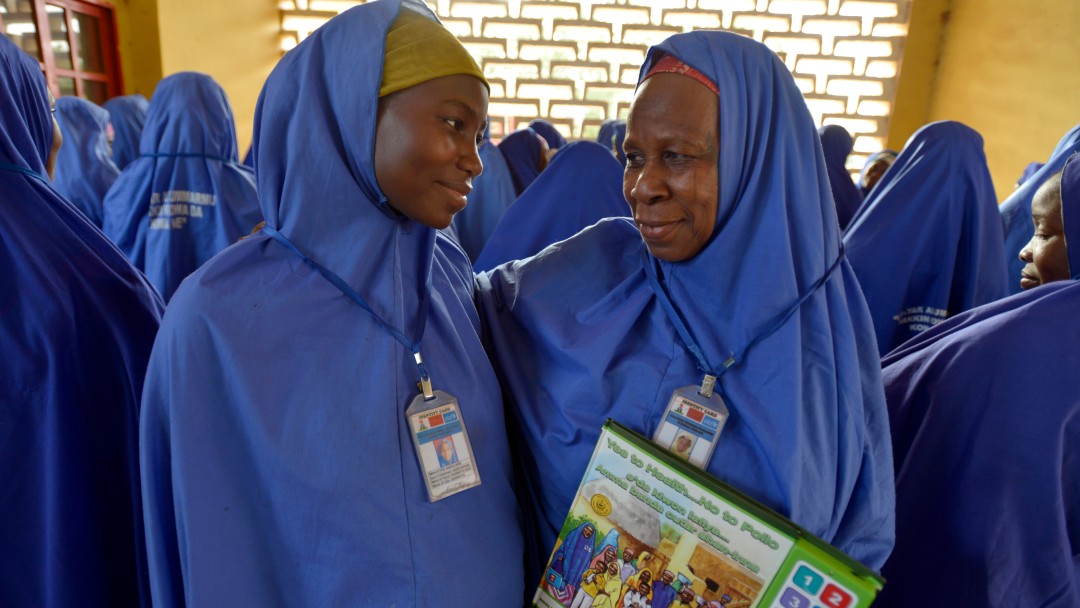News from 2019-10-18 / KfW Development Bank
Nigeria is becoming polio-free

There have not been any new wild polio infections in Nigeria and thus on the entire African continent since 21 August 2016. Three-years with no new infections is an important milestone on the way to Nigeria's official certification as a polio-free country.
Poliomyelitis (abbreviation: polio) is a viral infectious disease that attacks nerve cells and can lead to permanent symptoms of paralysis and death. The disease cannot be cured and primarily affects children under five years old, which is why it is also known as infantile paralysis.
Global eradication of polio was defined as an important objective during the Forty-first World Health Assembly in 1988. This is also the goal of the "Global Polio Eradication Initiative" (GPEI), a public-private partnership between national governments under the supervision of five main partners – the World Health Organization (WHO), Rotary International, the United States Centers for Disease Control and Prevention (CDC), the United Nations Children's Fund (UNICEF) and the Bill & Melinda Gates Foundation. Today – over 30 years later – we are on the brink of achieving this goal: under the auspices of the GPEI, we have already been able to reduce the number of countries in which polio is endemic from 125 to just three, namely Afghanistan, Pakistan and Nigeria.
Nigeria is on the home straight
The GPEI's global strategy and the national annually updated Nigeria Polio Eradication Emergency Plan (NPEEP) were able to set the course for halting transmission of the polio virus in Nigeria since 2016. The Nigerian government receives support for implementing these emergency plans from GPEI partners and the donor community. Since 2005, KfW has provided around EUR 162 million on behalf of the German Federal Ministry for Economic Cooperation and Development (BMZ) to support implementation of the emergency plans to fight polio in Nigeria, primarily through the "Polio Control Programme".
In addition to nationwide routine vaccinations, the annual polio emergency plan also stipulates nationwide and regional special vaccination campaigns supported by the WHO and UNICEF. There are immense logistical challenges when it comes to timely distribution of the vaccines, as well as recruiting, training and monitoring the approximately 200,000 – 400,000 community mobilizers and people helping with the vaccinations each year, many of whom are women. The objective is to protect all children under five years of age from the polio virus using vaccines, even in the safety-critical northern regions of Nigeria where Islamic terrorist groups like Boko Haram repeatedly organise attacks. A situation-specific safety concept includes having the Nigerian military accompany immunisation authorities and using a "hit-and-run" strategy that organises vaccination campaigns at short notice and implements them quickly in order to protect the heath aid workers during their missions in dangerous regions.

The rapid population growth and precarious safety situation in the north-eastern part of the country continue to present risks that could lead to a resurgence of the polio virus. So it is all the more important that we continue supporting Nigeria and GPEI to ensure success.
Within the context of government consultations from 3–4 October 2019, and on the occasion of German Federal Minister of Health Spahn's trip to Nigeria on 5 October 2019, the German Federal Government has committed an additional EUR 26.8 million for a new phase of the Polio Control Programme. KfW's partners have been supporting this programme's implementation for over 14 years. The funds for implementing the 2020 national polio emergency plan are expected to be made available this year.
Nigeria is on the home stretch: the country may soon be certified as polio-free and removed from the list of countries where the disease is endemic. That would pave the way towards certifying the African continent as polio-free – a significant step on the way to globally eradicating polio.

Share page
To share the content of this page with your network, click on one of the icons below.
Note on data protection: When you share content, your personal data is transferred to the selected network.
Data protection
Alternatively, you can also copy the short link: https://www.kfw-entwicklungsbank.de/s/enzBWrMC.CFlA
Copy link Link copied